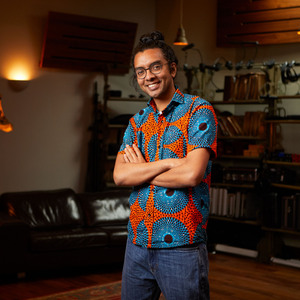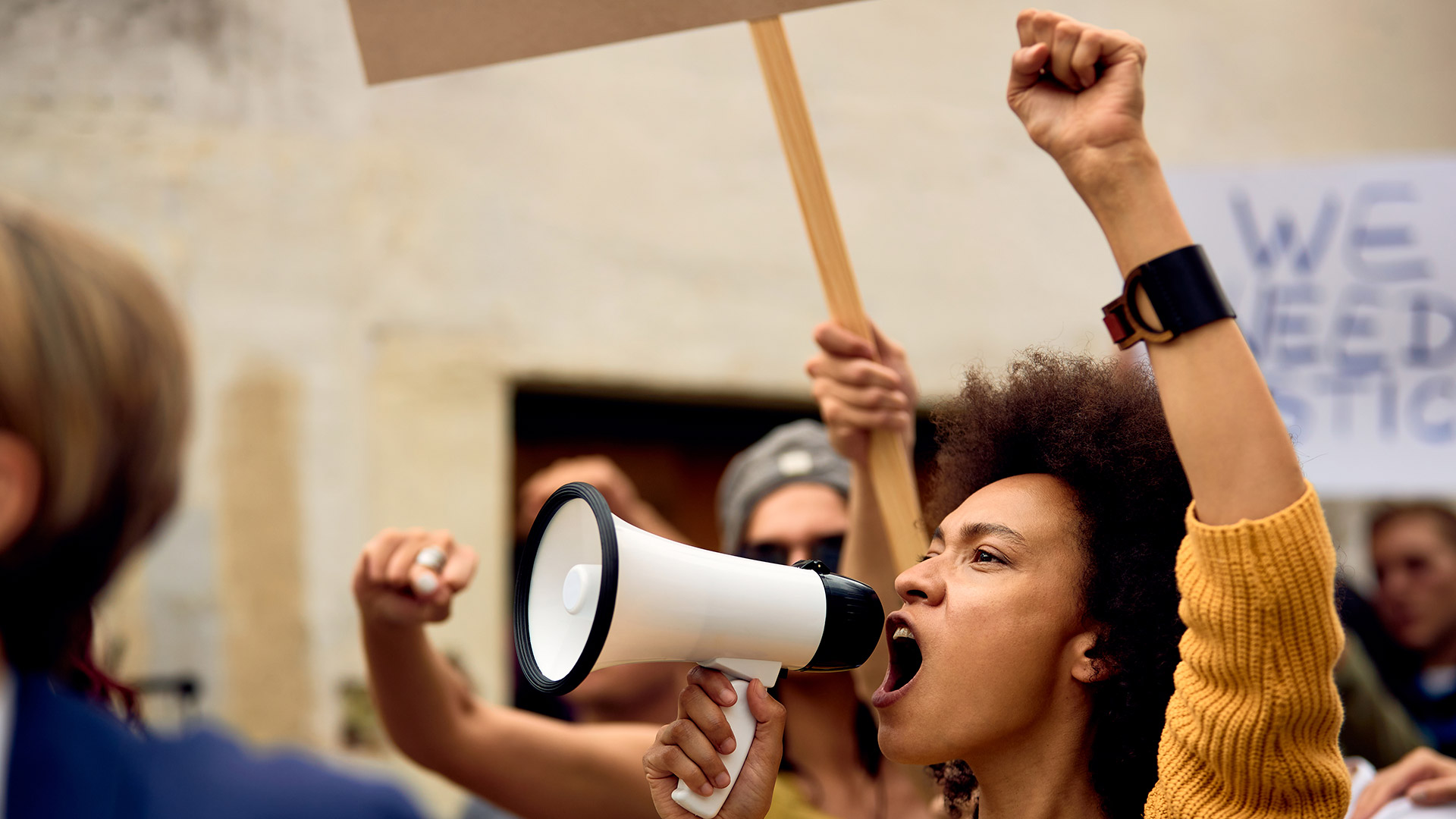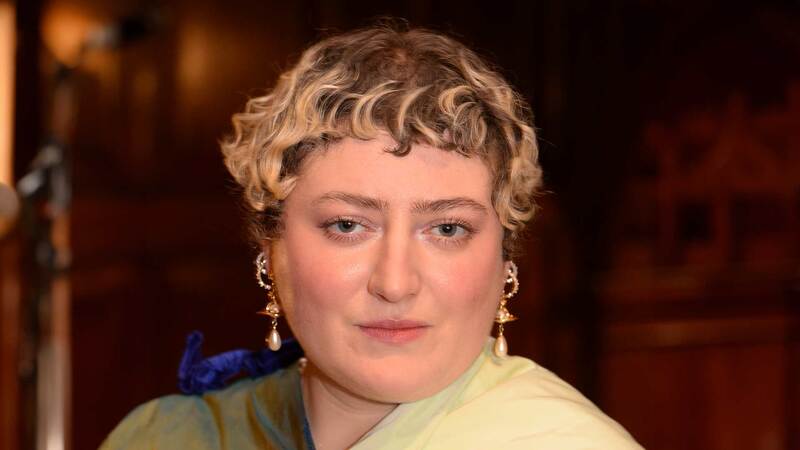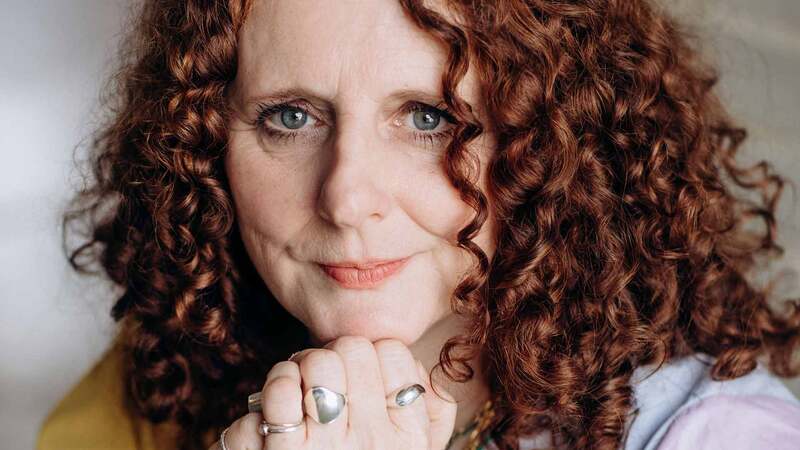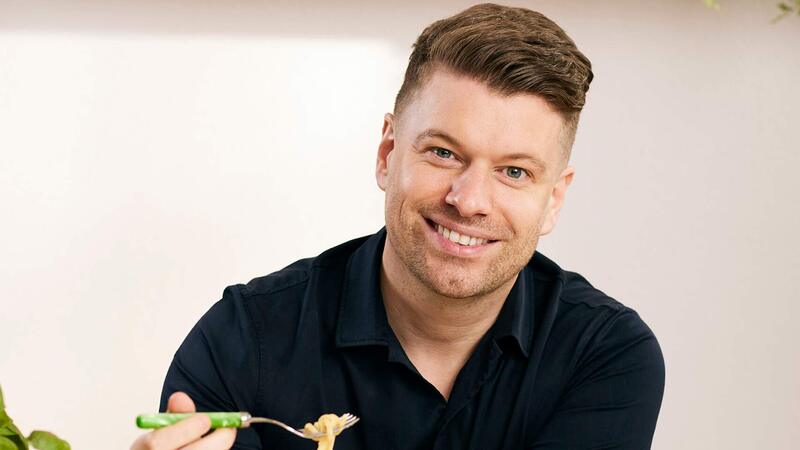You are viewing your 1 free article this month. Login to read more articles.
Now is the time for protest poetry
In a world where truth and opinion divide, emotion can unite.
I’m not sure if you heard, but truth doesn’t exist anymore. We watched its funeral on multiple social media sites each from opposing angles each completely different from the last. The other night I watched a Russian bridge go up in flames, listened to Kanye West tell me about abortion and saw a man start a race war on a train in Dagenham. The night before, I was at the theatre watching an actor who was actually a digitised version of an actor on stage. All of this might or might not have happened. Nothing is certain.
For years, I’ve philosophised around the breakdown of truth and suddenly we seem to be in a time where everything is enhanced, boosted with hyperbole, digitally remastered to grab a couple more likes or comments. The combination of this and cancel culture has made writing protest poetry more difficult than ever.
My name is Arji Manuelpillai, I’m a poet, facilitator and activist. I’ve been attempting to create social change through art for many, many years. Sometimes this is small scale within workshops in prisons, schools and immigration removal centres. Other times it’s through discussions, readings and marches. But my main interest at the moment is creating work that attempts to encourage change on a grander scale. I want to connect disparate parts of society.
In the last 10 years it has become increasingly difficult to fight the general apathy and negativity around making change in the UK. Take climate change for example. We have a plethora of poets who have written about our environment. We’ve had pop stars sing about it, we’ve even had large-scale visual art flown into stadiums but the truth is, none of it has really worked. Often we shout at activists blocking a road almost as though their certainty annoys us. I think, deep down, we know time is running out but deep down we cannot face losing our own balanced equilibrium. Could it be we are too scared to take a side because of the repercussions it would force on us?
As a poet, I’m always finding poets who attempt to bring change. Last year saw the powerful Rifqa by Mohammed El-Kurd, an inspiring poet born to Palestinian activists who went all out to speak of the atrocities in Palestine. I was shocked by his brashness and amazed by his courage to write with such certainty. But he was born into that certainty.
For me, the great poetry of our time needs to work towards creating a view of a problem as if with a wide lens; not providing one truth, but instead creating a whole kaleidoscope of angles
I enjoyed Soft Targets by Sarah Landau, a poetry book that teeters on the edge of realisation, reflecting a thread of fear and violence running through our political system. I think of Americans such as Terrence Hayes, Patricia Smith and Danez Smith. These poets make powerful role models fighting for social change and equality through their work. They truly do make their position inherently clear. But what do we have in the UK? Who is creating the call to action here?
These questions have been plaguing me for the past five years. I’ve watched some of the greatest poets of our time write about falcons and their mothers, and don’t get me wrong — I love those poems — but surely, if ever there was a time for protest poems, THIS IS IT.
When I think of a politically charged poetry of England, I remember Tony Walsh’s "This is the place" shouted out to a crowd in Manchester following the Manchester bombings. I think of Vanessa Kissule and her powerful piece which captured the mood of Bristolians in the wake of the pulling down of the Colston statue. It strikes me that the most powerful political poetry is responsive. But, at the same time, the poems both captured just one side of the argument. Tony didn’t research how the terrorist felt. Vanessa didn’t research how the council thought. For me, the great poetry of our time needs to work towards creating a view of a problem as if with a wide lens; not providing one truth, but instead creating a whole kaleidoscope of angles. For me, this has become my calling.
This month, I’m publishing a book with Penned in the Margins. My book reflects my love for discussion. It is a political piece drawing together poetry inspired by interviews and research into radicalisation and hate crime in the UK. During the research stage, I had the privilege of speaking to members of the National Front, the EDL and former members of ISIS and the Tamil Tigers. I was enthusiastic about finding the bridge between journalism and poetry. I wanted to understand how I could construct a viewing point that didn’t take a clear political position, that instead drew similarities between each position. I wanted the reader to discover their own opinion and this proved very difficult. How do you give a racist a voice without platforming a racist?
After much discussion and debate, I found myself transcending group labels, avoiding statements loaded with judgement, veering away from my personal opinion or political view and this worked in building a richer and more nuanced discussion on hate in the UK. These feel like inherently English poems. Poems that don’t take sides, that sit, interested on the fence, that don’t complain about a queue but just exist, waiting. Poems like cups of tea for discussion. Poems that shout but leave you to do the thinking for yourself. It strikes me that this is the 21st century British way, perhaps?
It has been a hell of a journey and I’m glad to say this approach seems to have increased the poem’s timelessness. They focus on the feelings in the body, in the reactions and nuance rather than leaning into shocking soundbites. In a world where truth is harder and harder to decipher, perhaps the only truth we have is in the emotions we feel inside. Perhaps those emotions are the only things that unify us. I guess that’s what I learnt. This is the age of protest poetry. We don’t need to stand for something to write about it. We just need to listen more.
Arji Manuelpillai presents his debut pamphlet Mutton Rolls with writers James Cahill, Gurnai Johal and Sheena Patel in We Move: Debut London Literature on 20th October. Tickets cost from £10.
